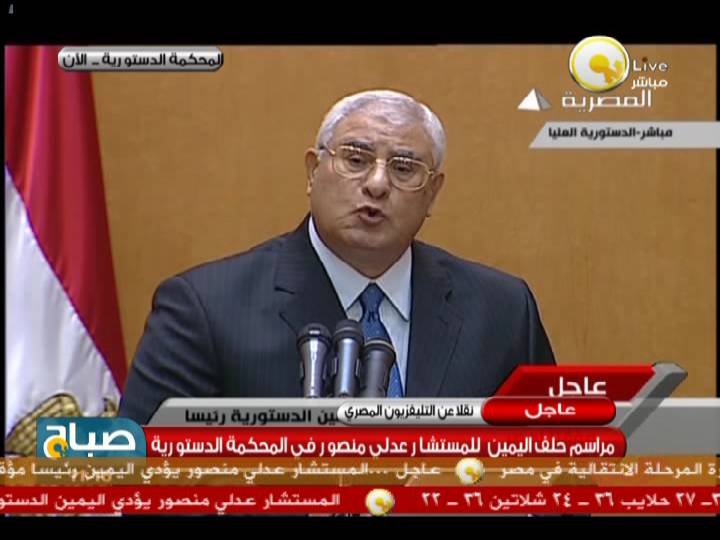
Egypt's interim president Adly Mansour has issued a 33 article transitional constitution that will guide the country after the removal of Mohamed Morsy last week by the Armed Forces in response to wide-scale protests.
The declaration holds “principles of Islamic Sharia as the main source of legislation.”
Whether that will be enough to lure back the hardline Islamist Nour Party, which had supported the military-led transition plans until Monday's attack, remains to be seen.
However, it was faulted for repeating flaws in the 2011 transition plan that contributed to the current crisis.
Nathan Brown, a leading expert on Egypt's constitution at George Washington University in Washington, said that while Monday's decree laid out a clear sequence for transition, it repeated many of the mistakes of the post-Mubarak process.
"It was drawn up by an anonymous committee; it was issued by executive fiat; the timetable is rushed; the provisions for consultation are vague; and it promises inclusiveness but gives no clear procedural guidelines for it," he told Reuters.
The Brotherhood movement has refused to have anything to do with the process, and thousands of supporters have camped out in northeast Cairo for the last five days and vowed not to budge until Morsy returns as president – a seemingly vain hope.
The events have worried Western allies. The United Nations said it was "gravely concerned" about mounting violence in Egypt and said the country was on a "precarious path."
"The Secretary-General condemns these killings and calls for them to be thoroughly investigated by independent and competent national bodies," it said in a statement.
The United States, still refraining from calling the military intervention a "coup" – a label that would trigger legal obstacles to continuing aid payments – called on Egypt's army to exercise "maximum restraint."
The White House said it was not about to halt aid to Egypt.
The Egyptian military, recipient of $1.3 billion a year from Washington, has insisted that the overthrow was not a coup and that it was enforcing the "will of the people" after millions took to the streets on 30 June to call for Morsy's resignation.




